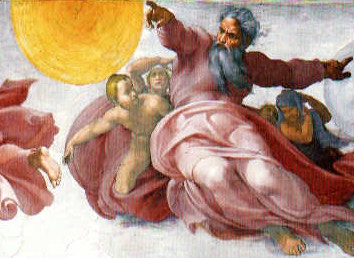June 30: Compelling Genesis as History
Pontifical Biblical Commission (1909):
Genesis as History?
It was on this date, June 30, 1909, that the Pontifical Biblical Commission, which had been formed by Pope Leo XIII seven years earlier, decreed that the first 11 chapters of the biblical book of Genesis must be interpreted as history, not as mythology. Between 1905 and 1915 the Commission voiced 59 replies to questions raised by historical critics of the Christian scriptures. The Commission expressly warned Catholics against reading the opinions of heterodox writers and unbelievers.
As in ages past, this meant that Catholics were compelled to accept as genuine history the childish and derivative stories of the Creation, the Garden of Eden, the Fall, the Flood, and the confusion of languages at Babel. Because the science of biblical criticism was unknown at the time, most of even the educated people of medieval Europe accepted Genesis as history — until the 1700s. A significant number still believed it after Darwin proved otherwise in the mid 1900s. And a disturbing number take Genesis literally even today. This, in spite of scholarly evidence that demonstrates Genesis to be the work of several authors, Jahvist and Elohist, not just the mythical Moses. Further, the story was edited to show, falsely, that Jahveh had always been the one God of the Hebrews, as opposed to one of many.
In the creation, the earth is formed before light and stars, birds and whales before reptiles and insects, and flowering plants before animals. Science tells us the true order of events was just the opposite. And how was it possible to have "evening and morning" on the first day of creation when God had yet to create the sun? In the first creation story, plants are created before humans (an apparently before the sun); in the second story, humans are created before plants. In the first story, the fowl of the air are created out of the water; in the second, they come from the earth. In the first of the two creation stories, beginning at Genesis 1:1, God makes humans (male and female) after the other animals; in the second, beginning at Genesis 2:4, God makes a man first, then the other animals, then Adam decides they're not good sex partners, so God creates a woman. Wise choice.
In the first story of the Fall, God tells Adam he may eat from "every tree" in the Garden of Eden, but in the second story God tells him not to eat from the tree of the knowledge of good and evil. God says that if Adam eats from the tree, he will die that day. But when Adam does so, he lives for another 930 years!
God decides to kill all living things in the Flood because the human imagination is evil (6:5). Later, after he kills everything, he promises never to do it again because the human imagination is evil (8:21). Noah's Ark was too big to be seaworthy, yet too small to contain the millions of the species of land animals — and birds were on their own! The flood covered the highest mountains, but there is no explanation of where the water came from, where it went, or why there is no geological record of it.
The Tower of Babel story contradicts itself: in chapter 11 (1), Genesis says, "the whole earth was of one language," but in Chapter 10 (5, 20, 31) a profusion of languages already existed! In the Babel story, languages diversified instantaneously; in history, languages evolved. In the Babel story, humans separated into groups on the basis of their language, but historical linguists will tell you that languages evolve within groups already separated.
The Pontifical Biblical Commission ratified the prescription of its founder, Leo XIII, who said, "All the books which the Church received as sacred and canonical were written wholly and entirely, with all their parts, at the dictation of the Holy Ghost. It is impossible, therefore, that any error can co-exist with divine inspiration." If you think the clerical suppression of critical thought is a relic of a bygone era, you need only look at the Commission pronouncements on this date in 1909.
Originally published June 2003 by Ronald Bruce Meyer.


